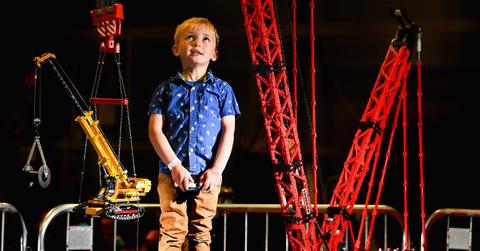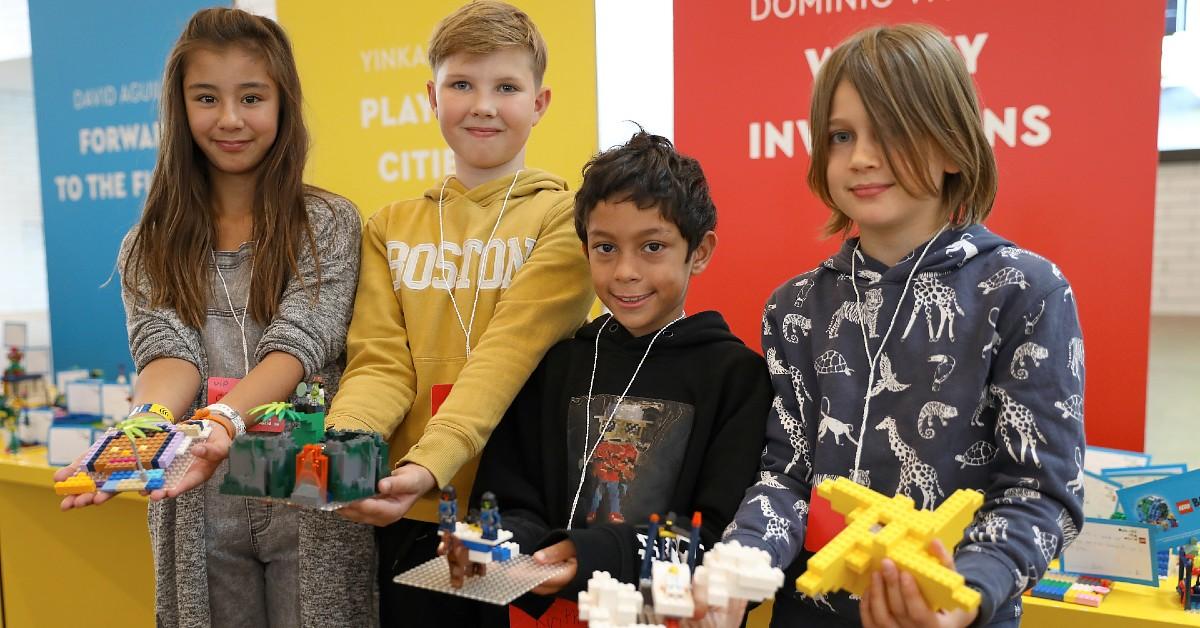Lego Will Remove Gender Bias From Products in an Attempt to Become Gender-Neutral
Published Oct. 12 2021, 3:32 p.m. ET

Dolls are for girls and trucks are for boys, right? It's just the way things are, or at least how they used to be. For so long, toy aisles were blatantly separated by gender. Easy-Bake Ovens and pink-packaged dolls featuring photos of little girls playing took up space in one aisle, while blue and fiery orange monster trucks and toy guns for the rowdy boys occupied another. Thankfully, this is slowly changing.
Many toy companies are beginning to change how they market their products as a progressive step toward inclusivity and gender neutrality. What really makes a Hot Wheels car a "boy toy" anyway? The Lego toy company has recently been vocal on its stance, pledging to remove gender bias from its products in an attempt to become gender-neutral. What will this look like? Let's hear what Lego has to say.

Kids at LEGO's Rebuild The World Campaign in 2019
Fussing and playing with engaging, stimulating toys is one of the building blocks of childhood, pun very much intended. Since 1932, Danish toy brand Lego has been pumping out diverse kits consisting of colorful, interconnecting plastic bricks, which are the company's signature. Considering Lego sells products in over 130 countries, its impact on children all over the world has become tremendous over several decades. As the world changes its stance on gender capitalism, Lego refuses to stay stagnant.
“The company will ensure any child, regardless of gender identity, feels they can build anything they like,” Lego stated. More specifically, the company promised to ensure its products are “free of gender bias and harmful stereotypes" from now on, further stating that there is a "need for society to rebuild perceptions, actions and words to support the creative empowerment of all children."
Lego recently conducted research surrounding the effect gender stereotypes and expectations have on how boys and girls play.
According to NBC News, Lego's product and marketing department will no longer use gender-focused product groups, as it will now rely on groups addressing "passions and interests." This progressive move came after research was done specifically for Lego at Geena Davis' research institute, which showed that girls were more willing to experiment with different types of play than boys. Approximately 7,000 parents and children from seven countries took part in the research.
Incredibly, "76% of parents would encourage their sons to play with Lego bricks while just 24% would do so with their daughters," CNN reported. Not only that, but parents were more likely to encourage their daughters to play dress-up, dance, or cook than their sons, and more likely to encourage their sons to play coding games or engage in sports than their daughters. The research was released to strategically align with the UN's International Day of The Girl, on Oct. 11, 2021.
“The benefits of creative play such as building confidence, creativity and communication skills are felt by all children and yet we still experience age-old stereotypes that label activities as only being suitable for one specific gender,” chief product and marketing officer, Julia Goldin, stated.
While Lego is on its way to leading the gender-neutral revolution, its past begs to differ. The gender stereotypes the company is now abolishing were very much present in 2011's "Lego Friends" collection. Though it wasn't all bad (we spotted a girl with a ruler ...), kits depicting girls going to beauty salons and bakeries decked out in pink rubbed people the wrong way.
Lego is making up for its sins, as it will release an LGBTQ-themed kit called "Everyone is Awesome," which references gay indie pop duo Tegan and Sara's song featured in The Lego Movie. You can pick up this set in May 2022.